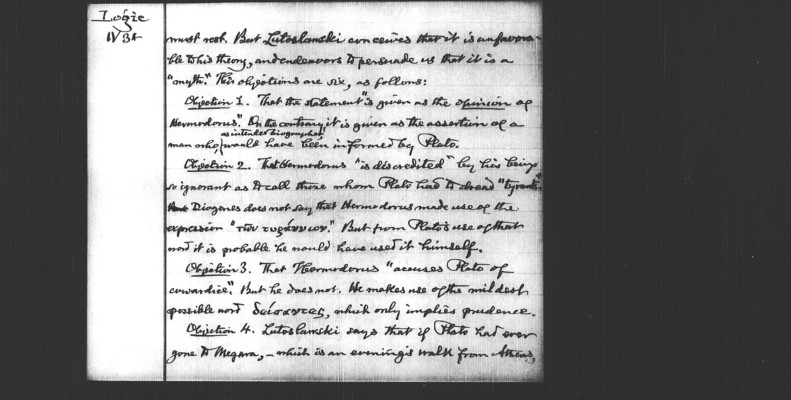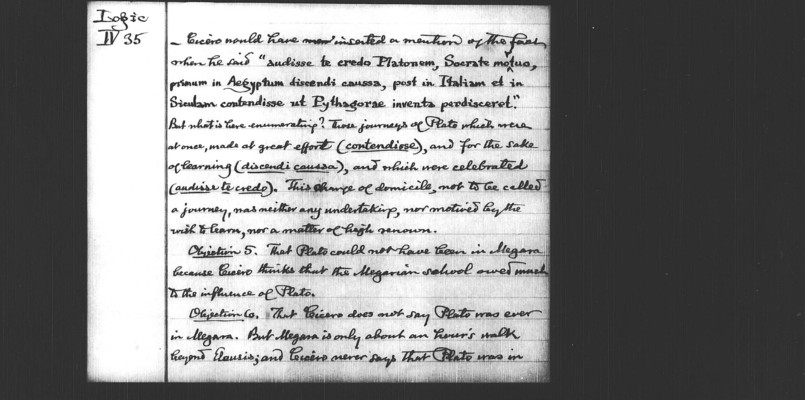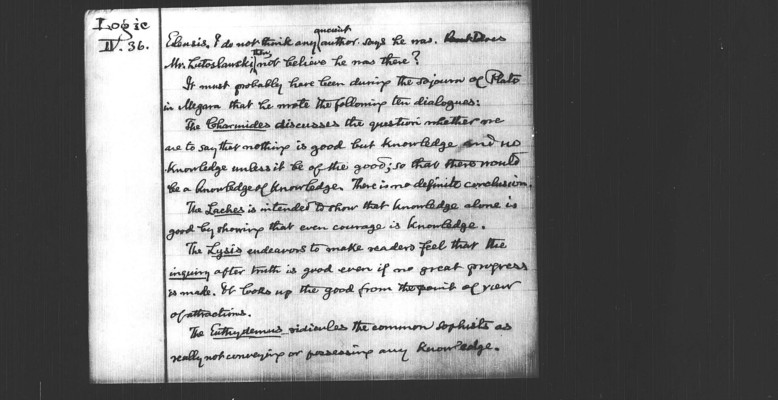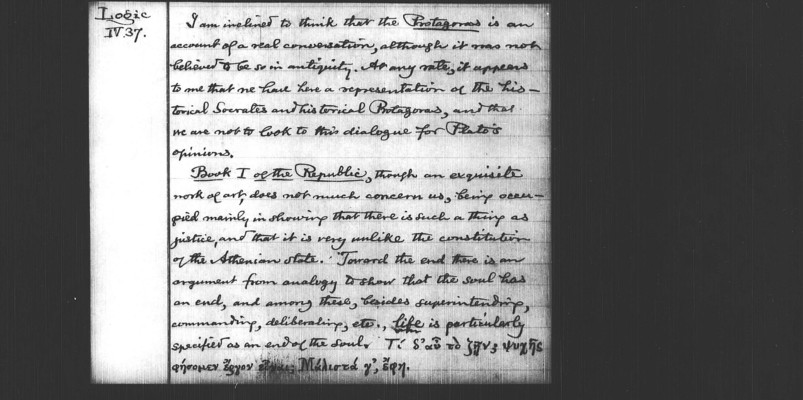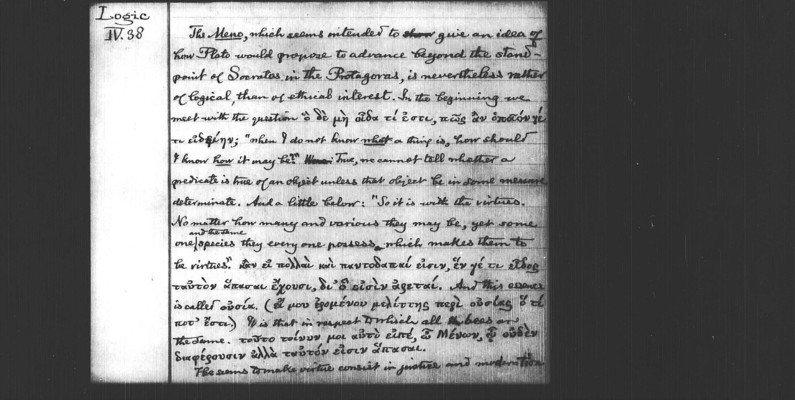Pages
31
Logic IV 34 must rest. But Lutoslanski conceives that it is unfavorable to his theory and endeavors to persuade us that it is a "ought." His objections are six as follows: Objection 1. That the statement "is given as the opinion of Hermadorus." On the contrary it is given as the assertion of a man who as intended biographer would have been informed by Plato. Objection 2. That Hermadorus "is discredited" by his being so ignorant as to call those whom Plato has to dread "tyrants." Diogenes does not say that Hermadorus made us of the expression [foreign text]. But from Plato's use of that word it is probable he would have use it himself. Objection 3. That Hermadorus "accuses Plato of cowardice," but he does not. He makes use of the mildest possible word [foreign text], which only implies prudence. Objection 4. Lutoslanski say that if Plato had eve gone to Megar which is an evenings walk from Athens
32
Logic IV 35 Cicero would have inserted a mention of the fact when he said [foreign text]. But what is here enumerating? Those journeys of Plato which were at once made of great effort (contendisse) and for the sake of learning (discendi caussa) and which were celebrated (audisse te credo). This change of domicile not to be called a journey was neither any undertaking nor motivated by the wish to learn nor a matter of high reknown. Objection 5. That Plato could not have been in Megara because Cicero thinks that Megarian school owned much to the influence of Plato. Objection 6. That Cicero does not say Plato was ever in Megara. But Megara is only about an hour's walk beyond [Elausis?] and Cicero never say that Plato was in
33
Logic IV 36. Elensis, I do not think any ancient author says he was. Does Mr. Lutoslawski then not believe he was there? It must probably have been during the sojourn of Plato to Megara that he wrote the following ten dialogues: The Charmides discusses the question whether we are to say that nothing is good but knowledge and no knowledge unless it be of the good so that there would be a knowledge of knowledge. There is not definite conclusion. The laches is intended to show that knowledge alone is good by showing that even courage is knowledge. The Lysis endeavors to make readers feel that the inquiry after truth is good even if no great progress is made. [He?] looks up the good from the point of view of attractions. The Euthydemus ridicules the common sophists as really not conveying or possessing any knowledge.
34
Logic IV 37 I am inclined to think that the Protagoras is an account of a real conversation although it was not believed to be so in antiquity. At any rate it appears to me that we have here a representation of the historical Socrates and historical Protagoras and that we are not to look to this dialogue for Plato's opinions.
Book I of the Republic though an exquisite work of art does not much concern us being occupied mainly in showing that there is such a thing as justic and that is very unlike the constitution of the Athenian state. Toward the end there is an argument from analogy to show that the soul has an end and among these besides superintending, commanding, deliberating, etc. life is particularly specified as an end of the soul. [foreign language].
35
Logic IV. 38 The Meno which seems intended to give an idea of how Plato would propose to advance beyond the standpoint of Socrates in the Protagoras is nevertheless rather of logical than of ethical interest. In the beginning we meet with the question "[foregin text]" when I do not know what a thing is how should I know how it may be? True we cannot tell whether a predicate is true of an object unless that object be in some measure determinate. and a little below. So it is with the virtues. No matter how many and various they may be yet some one and the same species they every one possess which make them to be virtues. [foreign text]. And this essence is called [foreign text]. It is that in respect to which all [bees] are the same. [foreign text]. He seems to make virtue consist in justic and moderation
